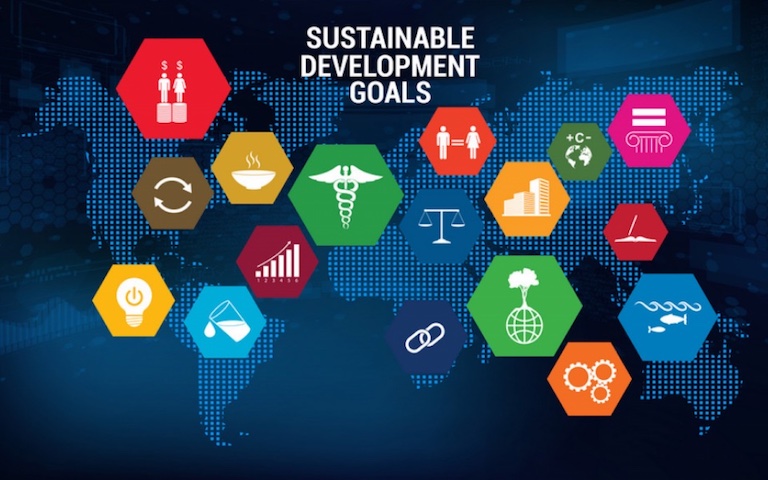The United Nations Economic and Social Commission for Asia and the Pacific (ESCAP) has released its annual flagship report that evaluates the progress of the region towards achieving the Sustainable Development Goals (SDGs). The 2023 edition of the report finds that Asia and the Pacific region will require another 42 years to achieve the 2030 Agenda for Sustainable Development, based on current trends. This year’s report titled “Championing Sustainability Despite Adversities” presents the achievements of the region’s countries in using evidence-based policies to accelerate progress. The report highlights data gaps as a significant impediment to achieving the SDGs, while also offering guidelines and resources to bridge data availability gaps.
Slow Progress of Asia and the Pacific Region towards Achieving SDGs
The report finds that the Asia and the Pacific region has made significant gains in SDGs 7 and 9, which address affordable and clean energy and industry, innovation, and infrastructure, respectively. Additionally, the region has reversed some negative trends in SDGs 8, 10, and 17, which address decent work and economic growth, reduced inequalities, and partnerships for the Goals, respectively. However, the overall progress remains slow, and none of the countries in the region is on track to achieve the SDGs. At the midpoint towards 2030, the region should have made half the progress required to achieve the SDGs, but progress has only reached 14.4%. The report warns that at the current pace, the Asia-Pacific region will fail to reach 90% of the 118 measurable SDG targets by 2030 unless efforts are multiplied.
National Achievements towards SDGs
The report recognises national initiatives towards achieving the SDGs. For instance, India has reduced child marriages, while Cambodia, Pakistan, and Timor-Leste have increased the rate of births attended by skilled personnel. Afghanistan has improved the processing of identity documents for Afghan refugees in Pakistan. These national achievements are notable but insufficient to accelerate the pace of achieving the SDGs.
Data Availability and Gaps for the SDGs
The report acknowledges that data availability for the SDGs has doubled since 2017. However, it notes that data remain insufficient for 51 out of 169 targets, with significantly lower data availability observed in Small Island Developing States (SIDS), despite gradual progress. Data gaps affecting high-income countries relate mainly to SDGs 5, 14, and 16, which address gender equality, life below water, and peace, justice, and strong institutions, respectively.
Targeted Assistance for the Least Developed Countries
The report highlights the need for targeted assistance for the Least Developed Countries (LDCs), Landlocked Developing Countries (LLDCs), and Small Island Developing States (SIDS) to help them make progress towards achieving the 2030 Agenda. These countries face significant challenges, including inadequate financial resources, lack of access to technology, limited infrastructure, and weak institutions. The report urges the international community to support these countries in achieving the SDGs.
Input for Regional and Global Forums
The report serves as input for the Asia and the Pacific Regional Forum on Sustainable Development (RFSD), which takes place in Bangkok, Thailand, from 27-30 March 2023. Its findings will also inform deliberations at the High-level Political Forum on Sustainable Development (HLPF) in July and the SDG Summit in September. These forums will provide a platform for stakeholders to discuss progress, challenges, and opportunities towards achieving the SDGs.
Conclusion
The 2023 edition of the Asia and the Pacific SDG Progress Report provides a comprehensive assessment of regional progress towards the SDGs. While the report highlights some areas of progress, it also underscores the urgent need for increased efforts to achieve the SDGs by 2030. With only 14.4% of the necessary progress achieved so far, the region must take bold and decisive action to accelerate progress and address the pressing challenges that remain. By leveraging data and evidence-based policies, and by providing targeted assistance to the countries that need it most, the region can make progress towards a sustainable and prosperous future for all.

